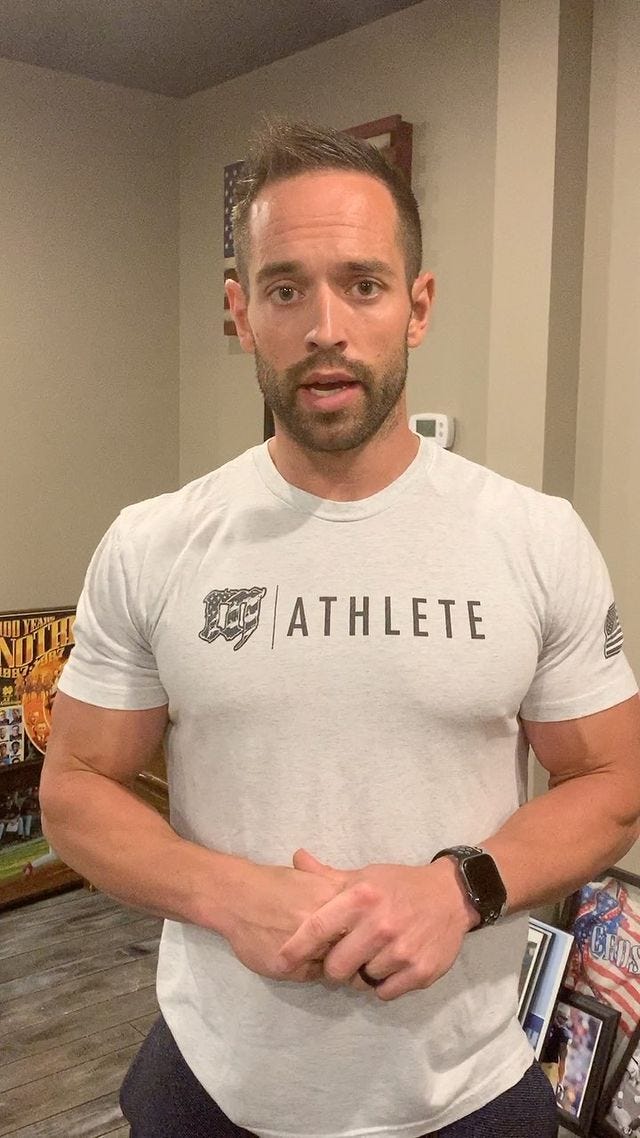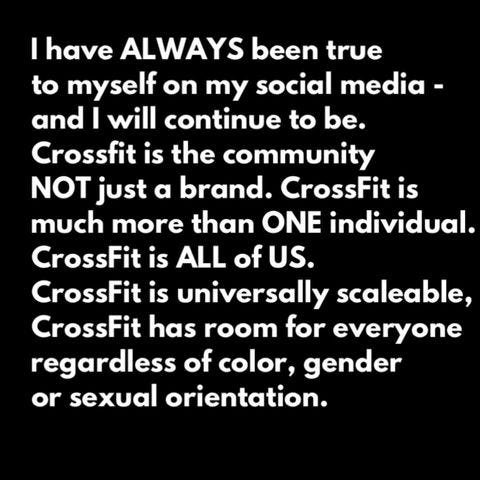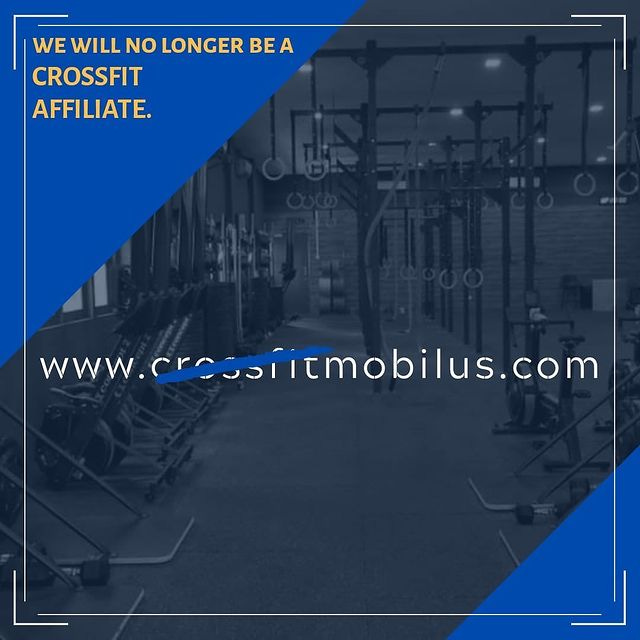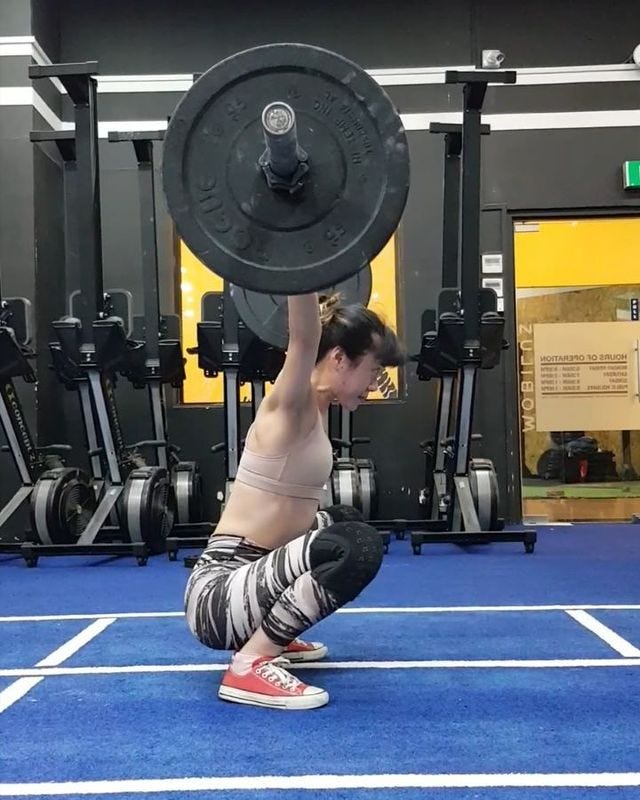CrossFit boxes will outlive its CEO
Decentralization and community building lends economic impact to the Black Lives Matter movement
CrossFit CEO Greg Glassman, a fitness entrepreneur worth ~$100m, got cancelled by Reebok and his community through his own racially tone-deaf hubris on social media. In a world of heightened sensitivity, as the Black Lives Matter movement fights to gain momentum and the world fights to contain the COVID-19 pandemic, Glassman tweeted “FLOYD-19”, castigating the Institute for Health Metrics and Evaluation on their public statement to address racism:

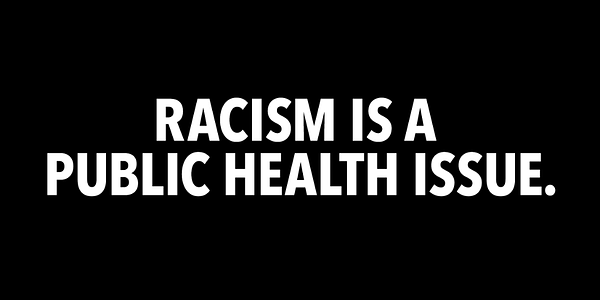
Glassman’s tweet went viral quickly, sparking outrage within the CrossFit community. Over 100 CrossFit affiliate boxes announced ending their affiliate memberships with CrossFit HQ, Reebok decided not to continue discussions to renew their long term brand endorsement with CrossFit, and top athletes have spoken out against Glassman’s tweet:
Closer to home, my local CrossFit box in Singapore have decided to also end their CrossFit affiliation, which sparked my initial interest in what transpired at CrossFit HQ:
This is Mobilus’ highest-liked post on IG to date, topping over 600 likes as at the time of writing, surpassing their average of 50 - 100+ likes per post. Mobilus is also well-positioned to branch out on its own, having spent 7 years building a solid local community that is self-sustaining. Even if the box chooses not to affiliate itself to CrossFit HQ, this does not prevent elite CrossFit athletes from dropping into train at the box and transfer WOD programming knowledge and techniques. Mobilus managed to kill two birds with one stone with this move - standing in solidarity with its community, further endearing the box to its core member base, AND reduce cost by cutting out high affiliate fees from its opex in these tough times.
To sum up, this shows that companies and other community builders are now standing up against racism by stripping away Glassman's sources of livelihood, hitting an entrepreneur where it hurts (his business income and reputation); adding further economic impact to the #BlackLivesMatter movement and the stand for #inclusivity around the world. But how does this stand for solidarity affect CrossFit HQ’s business model?
Seth Cohen of Applied Optimism describes CrossFit's business model well here:
CrossFit operates on an affiliate model in which individual gyms – referred to as boxes – pay to affiliate with CrossFit HQ, which, in turn, provides certain benefits such as training, certification, resources, and qualifications for the sports elite events. Over the past several days, CrossFit HQ had already come under pressure online from some of its affiliates for not speaking out about the death of George Floyd, with many questioning where the company and its leader stood on the issue of the protests.
As for CrossFit, the closest thing it has to a “commissioner” is Greg Glassman. And while the CrossFit community is fiercely independent and doesn’t operate with the same centralized governance of many other athletic and sports associations, it is clear that its constituency is still looking for some leadership and moral clarity, especially as the pandemic-induced shutdowns have shuttered many of its affiliates and the protests have rattled their communities.
Unfortunately, Glassman’s Tweets are not only failing to provide that leadership, but may actually be hurting the sport he helped created.
Glassman, realizing the severity of his outburst, issued an apology on Twitter, but the viral damage was already done:

It remains to be seen whether CrossFit can continue to be revenue-generating at $100m p.a. after this major social faux pas by their CEO. Ever since Glassman started CrossFit in 2001, the brand has grown into 15,000 affiliates in more than 160 countries. Having 100 affiliates, including a Singapore affiliate, leave in 24 hours after his tweet, indicates that this exodus could end up being highly viral on a global scale. CrossFit’s top athletes calling for unity could potentially keep the box owners together, and stem the bleeding from lost affiliate fee income.
CrossFit differentiates itself from other HIIT offerings in the market by branding itself as an elitist, extreme sport, charging premium fees of up to $250 / monthly and delivering WODs that are designed to push you until you rhabdo, a condition that causes rapid muscle fiber tearing to the point you collapse and puke your guts out (should you choose to push yourself this far). Your workout is my warmup / Do you even lift brah memes come to mind. Having personally trained in CrossFit boxes and HIIT focused gyms, the workouts at CrossFit are just way harder in general and push you across a wider range of movement with longer reps and higher intensity, covering metcon, gymnastics, weightlifting, and other endurance sports movements. This rigorous programming, incorporated in CrossFit WODs, attract communities made up of driven, like-minded individuals who are committed to their life passions and the pursuit of excellence in everything they do.
An analogy of the competitive landscape on what would differentiate CrossFit vs other gyms essentially comes down to community building, and CrossFit boxes do this way better than any other fitness movement I’ve seen, at scale. The culture of cheering each other on to finish a gruelling WOD helped foster this camaraderie over the years. An analogy would be akin to WeWork’s community scale vs other co-working space offerings in the market. It would be hard for newcomers to beat that critical mass achieved, and in the fitness world, relationships within the existing CrossFit community runs deep. The affiliate CrossFit network enabled the CrossFit community to administer its own version of an informal ClassPass system, allowing traveling coaches and athletes to drop into any CrossFit box in 160 countries, years before ClassPass came about, strengthening the community globally.
I started my CrossFit journey when I first moved to Jakarta in 2013. I trained at the first Crossfit box in Jakarta, started by Brian Pandji in his family garage. It was gritty, communal, and as raw as it gets to a CrossFit garage gym experience. I’d train 3-4 times a week, and became good friends with other CrossFitters over the years. CrossFit always provided me a warm, welcoming community whenever I find myself in new or familiar cities and looking to drop into a local box for a solid workout and friendly faces: from Jakarta, Singapore, Melbourne, to KL. In 2015, I began pursuing Olympic weightlifting separately within CrossFit Bengkel, thanks to a program offering by Coach Aaron. Weightlifting eventually became my go to preferred meditative sport to this day, which has brought me a lot of joy. I hope to hit the iron soon when CB measures ease up. As Henry Rollins perfectly articulates:
The Iron is the best antidepressant I have ever found. There is no better way to fight weakness than with strength. Once the mind and body have been awakened to their true potential, it’s impossible to turn back.
The Iron never lies to you. You can walk outside and listen to all kinds of talk, get told that you’re a god or a total bastard. The Iron will always kick you the real deal. The Iron is the great reference point, the all-knowing perspective giver. Always there like a beacon in the pitch black. I have found the Iron to be my greatest friend. It never freaks out on me, never runs. Friends may come and go. But two hundred pounds is always two hundred pounds.
Just like the Iron, values are consistent. It’s how we choose to stand up for them, and there is always strength in numbers.




